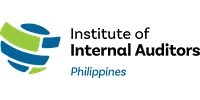Event Details
The COSO Internal Control-Integrated Framework is the original framework that has gained broad acceptance and is widely used globally. Since its release in 1992, business and operating environments have changed drastically, driving the need for an updated Framework.
In May 2013, the Committee on Sponsoring Organizations (COSO) released the updated Framework. The 2013 COSO IC-IF (COSO 2013) is intended to enable organizations to effectively and efficiently develop and maintain systems of internal control that can enhance the likelihood of achieving the entity's objectives and adapt to changes in the business and operating environments.
The International Standards for the Professional Practice of internal Auditing (IPPF) require Internal Audit Activities to evaluate and contribute to the improvement of governance, risk management, and control processes. Implementation and adoption by the Internal Audit of the COSO 2013 Framework, enables it to meet this responsibility, comply with the IPPF, and add value to their organization in accordance with its Mission.
This 4-day virtual course aims to enable participants to gain better understanding of the COSO 2013 Framework, its basic concepts, and how its principles-based approach can be used as a guide in the design, implementation, and evaluation of an internal control system.
Using a live case for the COSO mapping activity, participants will gain an appreciation of COSO from an internal audit perspective. Discussion of control model implementation best practices will provide insights on how the Internal Audit Office can initiate organization-wide implementation in their organization, as well as adopt a COSO-based methodology in the Internal Audit processes.
What You Will Learn
Part 1 – Understanding COSO 2013
I. COSO Background & History
The COSO Organization & Its Origin
Overview of COSO Frameworks & Guidance
Comparative Overview: COSO 2013 vs. COSO 1992
II. COSO Internal Control – Integrated Framework
The Need for a Control Model
COSO Internal Control Fundamental Concepts
III. Closer Look at COSO Elements
COSO Categories of Objectives
Control Environment Principles & Points of Focus
Risk Assessment Principles & Points of Focus
Control Activities Principles & Points of Focus
Information & Communication Principles & Points of Focus
Monitoring Activities Principles & Points of Focus
Part 2 – Implementing COSO 2013
IV. COSO 2013 Control Mapping (Live Case Activity)
The 3 Categories of Objectives
Control Environment
Risk Assessment
Control Activities
Information & Communication
Monitoring Activities
V. Evaluating Internal Control
Requirements for Effective Internal Control
Overall Assessment of a System of Internal Control
Assessment Template Walk-Through
Illustrative Scenarios Applying the Rules of
Present, Functioning & Operating in an Integrated Manner
Deficiency, Major Deficiency, Material Weakness
VI. COSO Organizational Implementation Options
CEB Implementation Template Walkthrough
Part 3 – COSO Based Auditing
VII. COSO-Based Auditing Application
Internal Audit Process
Entity & Activity Level Evaluations
COSO-Based Audit & Engagement Planning
Implementation Best Practices
VII. Summary & Next Steps
Next Steps and Action Plans
COSO Mapping Results & Gap Analysis
Implementation & Transition Project Planning
Self-Assessment & Revisit of Objectives




